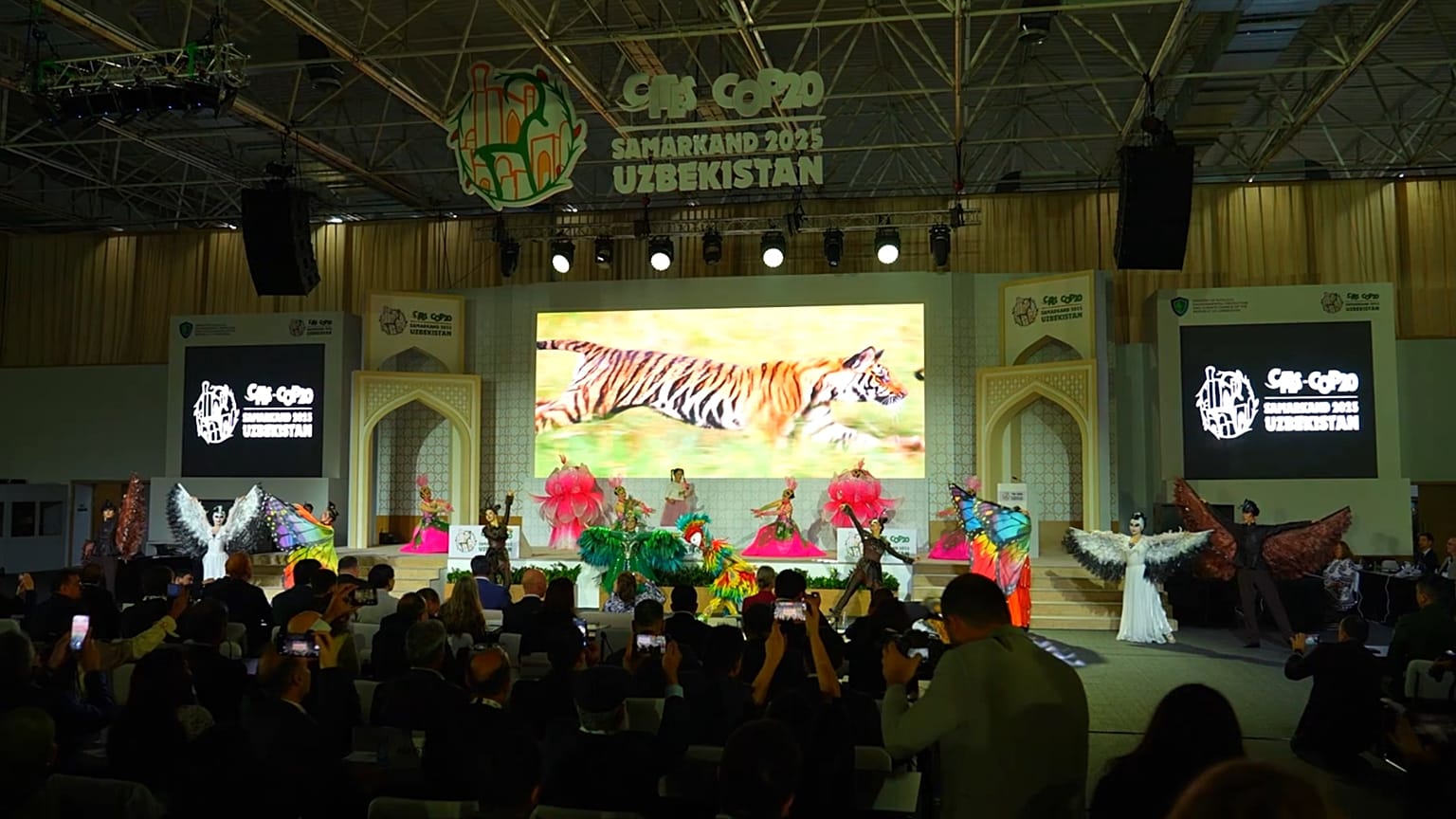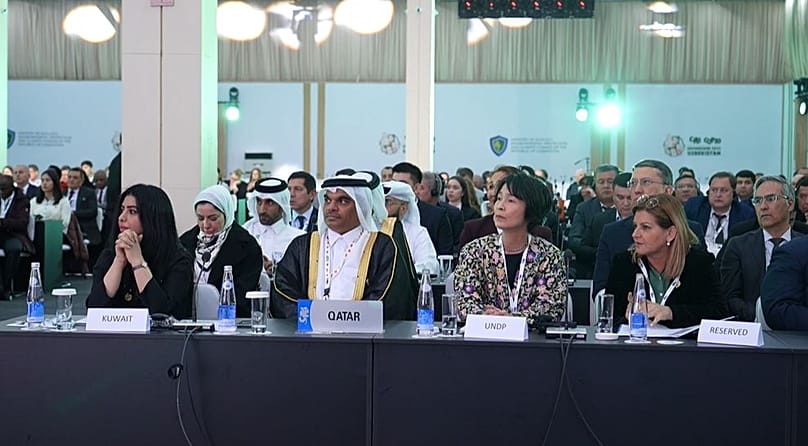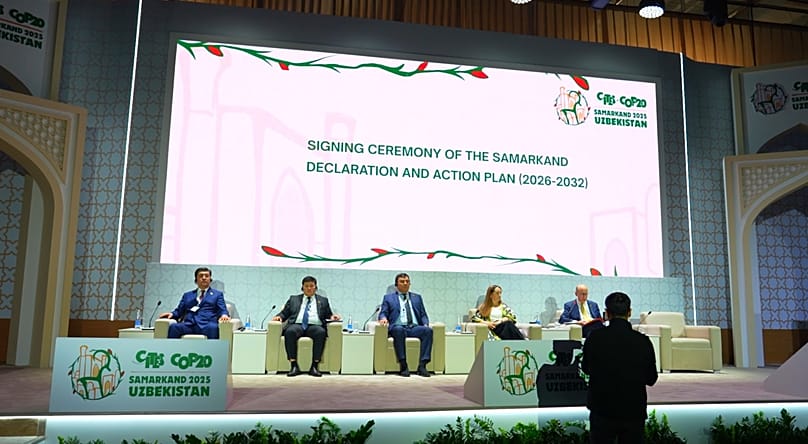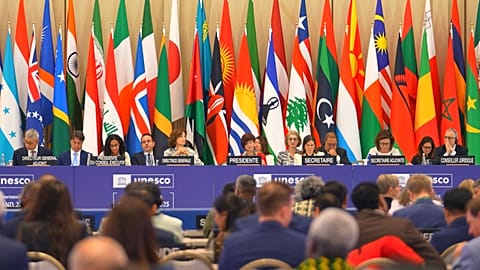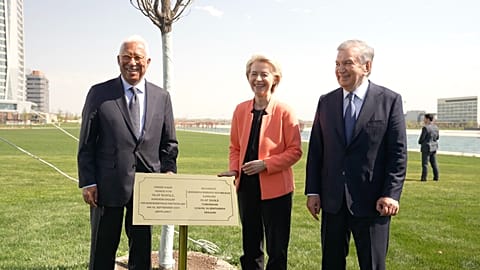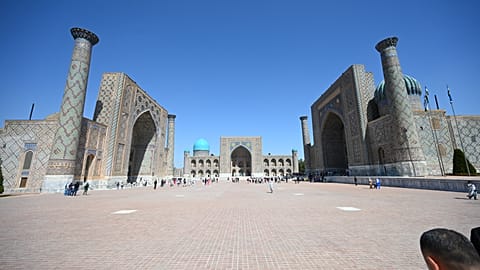Delegates will discuss sustainable use of natural resources, ecosystem restoration, and regional cooperation initiatives.
For the first time in Central Asia, Uzbekistan is hosting the 20th Meeting of the Conference of the Parties to the Convention on International Trade in Endangered Species of Wild Fauna and Flora (CITES CoP20).
The event turns Samarkand into a centre of international conservation policy and brings together nearly 3,000 participants, including 860 government delegates from 157 parties, as well as scientists, NGOs, and media.
It runs from 24 November to 5 December.
CITES is the global agreement regulating international trade in endangered species. Signed in 1973 and active since 1975, it now includes 185 parties and governs trade in more than 40,900 plant and animal species, ensuring it remains legal, sustainable, and well-controlled.
Uzbekistan joined CITES in 1997 and hosts 91 animal and 17 plant species covered by the Convention, including snow leopards, Bukhara deer, and rare medicinal flora.
Opening the conference, Aziz Abdukhakimov, advisor to the President of Uzbekistan and Chair of the National Committee on Ecology and Climate Change, spotlighted the country’s environmental ambitions.
“The declaration of 2025 as the ‘Year of Environmental Protection and the Green Economy’ reflects our dedication to sustainable, resource-efficient development. Uzbekistan is confidently emerging as one of the leading countries in the region and globally in addressing environmental challenges,” he said.
CITES Secretary-General Ivonne Higuero emphasised Samarkand’s symbolic role.
“A city that for centuries stood as a crossroads of cultures, ideas, and trade is now bridging nature and people. Fifty years of CITES have shown that responsible trade and conservation are inseparable, and the challenges today are greater than ever,” she noted.
Javokhir Abdukhalikov, of Uzbekistan’s National Committee on Ecology and Climate Change, added that “the initiative was submitted to the Convention last year and was successfully considered by the Standing Committee, which decided to hold the conference in Samarkand”.
Agenda and challenges
Across two weeks, delegates will review proposals affecting more than 250 species — from okapi and hyenas to ginseng, Brazil wood, sharks, and rays — and debate updates to the CITES Appendices. Migratory species such as snow leopards and saiga antelopes are major talking points at this year's conference.
Around 110 side events will run in parallel, covering enforcement, science, and community-led conservation.
Discussions will also explore innovative financing solutions, including public-private partnerships, biodiversity bonds, and payments for ecosystem services, while emphasising regional cooperation for migratory species such as snow leopards and saiga antelopes.
Abdukhakimov underscored the urgency: **“**Illegal wildlife trade is among the largest criminal activities globally, after drugs, arms, and human trafficking. Recent reports show that in 162 countries, illegal wildlife trade affected over 4,000 species, including 3,250 listed under CITES. Governments have seized over 13 million wildlife products.”
UN experts echoed the global stakes.
Astrid Schomaker of the Convention on Biological Diversity warned that **“**we cannot solve climate change without protecting biodiversity, and vice versa. Nature underpins our economies, our health, and our well-being.”
Delegates from the Democratic Republic of Congo highlighted the need for stronger monitoring and intelligence-sharing to combat wildlife trafficking while promoting sustainable resource use for local communities.
Musonda Mumba, Secretary-General of the Convention on Wetlands, added: “We are losing wetlands three times faster than forests due to unsustainable practices and degradation. Central Asia’s shared waters require regional cooperation and political will.”
Regional commitments and new projects
During the High-Level Dialogue, the Samarkand Declaration and the Regional Cooperation Action Plan for 2026–2032 were signed between Uzbekistan, Kazakhstan, Kyrgyzstan, and Tajikistan.
These agreements aim to combat illegal wildlife trade, promote sustainable use of natural resources, and strengthen ecological resilience through community engagement and cross-border collaboration.
Uzbekistan also launched the GEF-8 “EcoLand” project with the United Nations Development Programme (UNDP) and the International Union for Conservation of Nature (IUCN), backed by $6.1 million (almost €5.27 million) from the Global Environment Facility.
Abdukhakimov noted that “the signing of several grant agreements worth more than 20 million USD is planned,” along with the release of the country’s first Environmental Atlas and its first National Strategy for Ramsar Wetland Management.
“Parties will deliberate on an ambitious agenda: 120 documents, 350 draft decisions, and 50 species proposals covering more than 250 species,” said Ivonne Higuero.
“Discussions will address national legislation, reporting obligations, and measures to tackle noncompliance with the Convention.”















